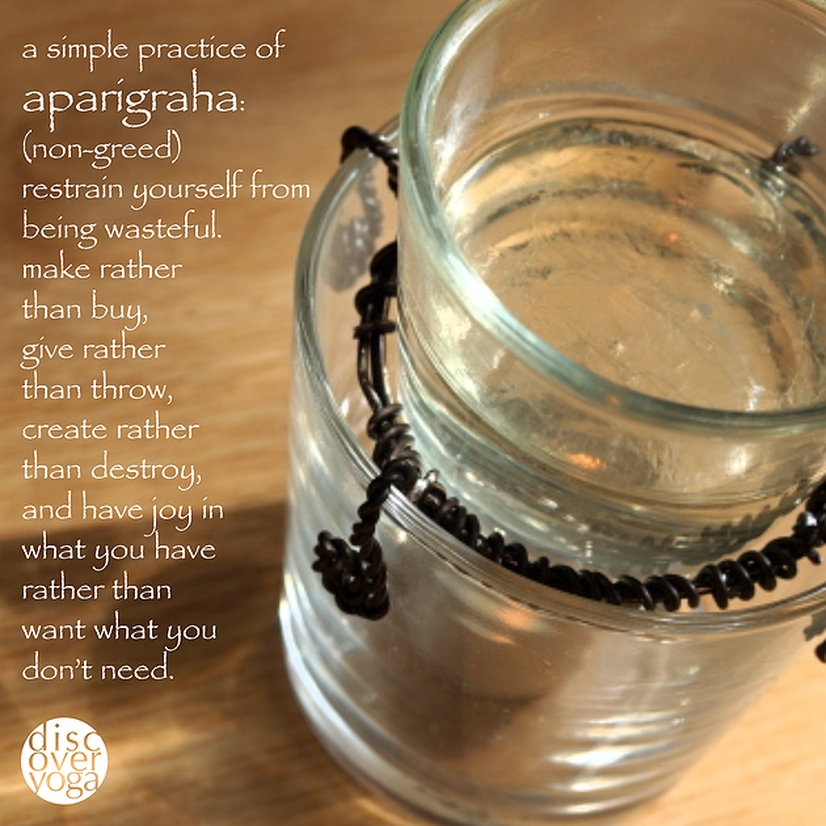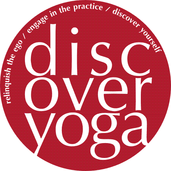- Home
-
Trainings
- Adelaide 200hr Yoga Teacher Training 2024
- Adelaide 200hr Yoga Teacher Training 2025
- One on One Yoga Teacher Training
- Rest and Restore YTT
- Senior Chair YTT - Brisbane
- Senior Chair YTT - Adelaide
- Senior Chair YTT - Melbourne
- Meditation and Mindfulness TT
- Online 200hr Yoga Teacher Training
- Online Post Graduate Yoga Teacher Training
- Classes and Prices
- Studio Hire
- Chair Yoga Australia
- One on One with Beeks
- Events & Happenings
- Team, Contact & Location
 Introducing our guest blogger, Aileen David Aparigraha: Having Joy in what you Have I bought this gorgeous Esprit bag as a post-Christmas present for myself. It is tan in colour, soft suede, stylish flap-over design, spacious and really, really gorgeous. I have a bag obsession. Not any kind of bag though; I prefer slings and back packs. Big enough that I can stuff everything I need and, of course, it has to be cute. I also tend to only buy from specific brands. So when there's something new, I start reasoning the purchase to myself and start obsessing over it. It would always feel so good when I finally get it. But after, the bag would wind up getting stuck in storage with all the other bags that I really, really wanted. Needed, even! Where am I going with this, you ask. I'm painting you a picture of my psychology when it comes to buying "stuff". Sometime last year I saw a unique oil burner. It was a laboratory flask attached to a wood stand with wing screws to keep the flask aloft. It was cute and it made sense to me. No boiling over, no spillage, aesthetically pleasing and I found it in a shop at Melbourne Central! I wanted it and clearly, finding it was a sign from the Universe that I was meant to have it. But it was expensive; $130 for the small one and $190 for the larger. But I wanted it. I didn't have the money to throw at it. But I wanted it. I could have asked my husband to buy it for me, and he would without hesitation. Because I wanted it. But I didn't get it. I left it on the shelf and walked away. Why? It wasn't pre-purchase buyer's guilt. That wouldn't have made me let it go. It was this simple sentence that rang through my head: "Don't be wasteful". It was then that I remembered one of the Yamas (self-restraints) of Patanjali, Aparigraha: the practice of non-greed, non-avarice, non-covetousness. But my definition was, as I said, simply being non-wasteful. I don't think anyone would disagree that we live in a highly commercialised world and being part of this world, we participate in this practise of near constant acquisition. We buy stuff regardless of whether we need it or even whether we can afford it. And more often than not, these stuff end up in storage or as clutter or as contributions to the landfill, all a big waste in the end. Apart from minimising adding to the strain on our little planet, I believe practising Aparigraha can help us appreciate the material things we already have. I'm not saying we can't buy new stuff or replace some of our old or broken things. But wouldn't it be better to use what we have to their fullest service thereby increasing their value and the value of the replacement. I'm not merely talking about monetary value either. We work hard for the money we use, so what we use it on should match that effort. We honour ourselves and the ones who support us by being wise about our purchases and possessions. Aparigraha can also make our spirits feel lighter because we free ourselves from digging our mental and emotional claws into an obsession, any obsession. So, going back to my oil burner, I decided to make one (it's the photo above). While making it, I was telling myself "Restrain yourself from being wasteful. Make rather than buy, give rather than throw, create rather than destroy, and have joy in what you have rather than want what you don't need."  Aileen David holds an advanced Diploma of Yoga Teaching, and a Masters in Yoga. She has attended numerous workshops and trainings throughout the years including a certificate in Ayurvedic healing, and from this, She has developed her own flowing style of Yoga called Dosha Vinyasa, which has strong elements of Ayurveda as well as Yoga. You can enjoy her blog Discover Yoga HERE And her Facebook page HERE
2 Comments
"I want to stand as close to the edge as I can without going over " Kurt Vonnegut In Yin Class tonight we explored the hips and I used this quote to support the wisdom of finding our personal edge in a practice and that is certainly something you find when sitting with the discomfort of strong hip openers that Yin offers as an experience. But what is our edge and what is this part of the practice that we are looking at? The edge could be our physical limits where we are pushing our body to extremes or perhaps a deeper emotional edge where we don’t want to go that far into the movement. What I was wondering when I came home is, “What is this edge and what would happen if we went over it?”. There is a sense that as we teeter into facing the abyss perhaps the letting go would allow us to find freedom or release. In a physical sense this push beyond our limitations may not be a wise move, causing pain or even injury however do we have an emotional or psychological edge that we dare not cross? Is there something that holds us back from feeling a more direct encompassing and freeing experience of existence.It may not be the body but the mind that holds us to the edge looking at the view and wondering. Louise is a Melbourne Yoga Teacher specialising in Prenatal, Restorative and Therapeutic Yoga. You can find more of her experiences and insights below.
https://aplaceofpractice.wordpress.com/ http://louiseavery.com/ |
AuthorThe Yoga Social Team Archives
March 2019
Categories |
The Yoga Social - All Rights Reserved © 2024
- Home
-
Trainings
- Adelaide 200hr Yoga Teacher Training 2024
- Adelaide 200hr Yoga Teacher Training 2025
- One on One Yoga Teacher Training
- Rest and Restore YTT
- Senior Chair YTT - Brisbane
- Senior Chair YTT - Adelaide
- Senior Chair YTT - Melbourne
- Meditation and Mindfulness TT
- Online 200hr Yoga Teacher Training
- Online Post Graduate Yoga Teacher Training
- Classes and Prices
- Studio Hire
- Chair Yoga Australia
- One on One with Beeks
- Events & Happenings
- Team, Contact & Location


 RSS Feed
RSS Feed